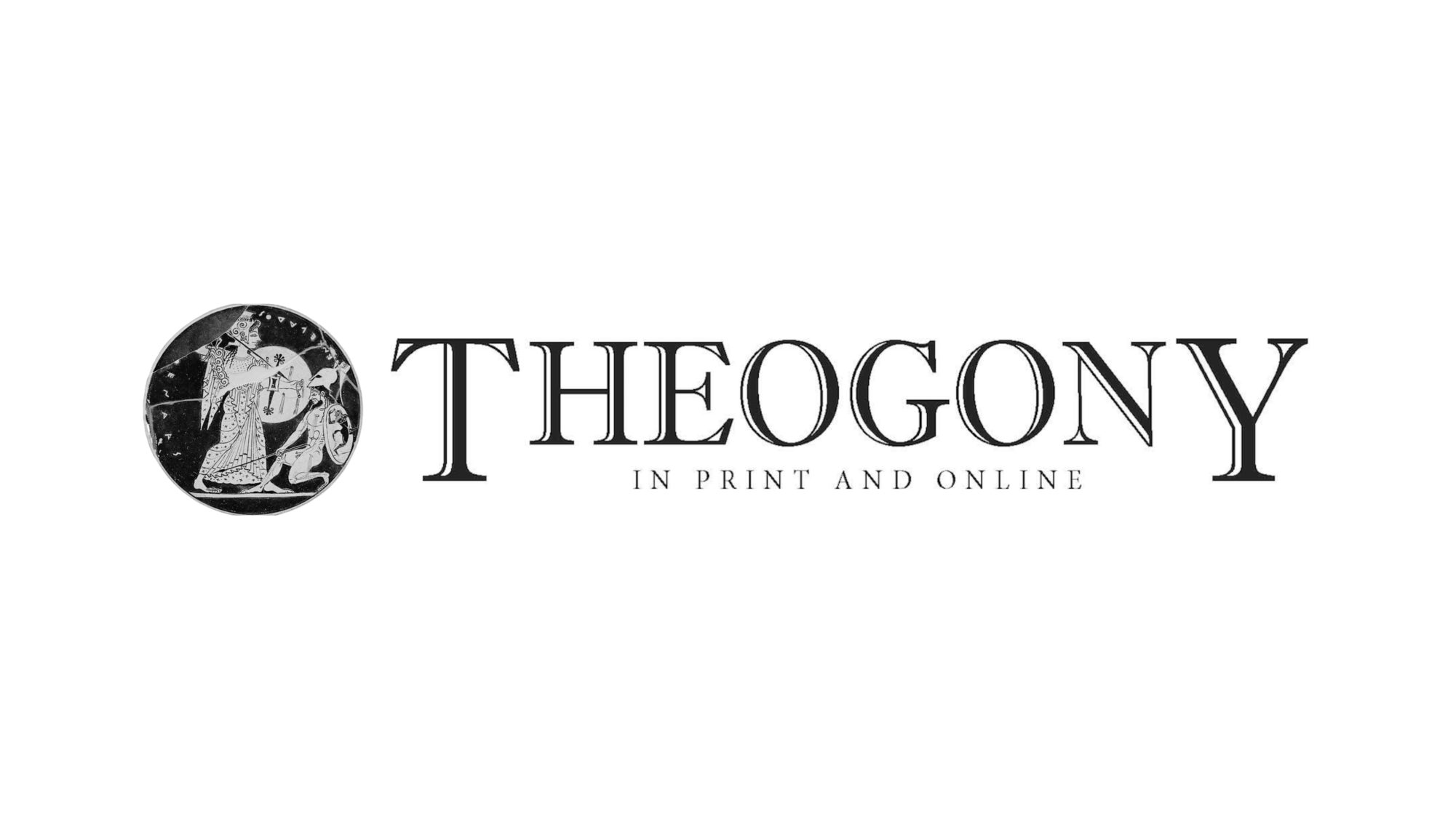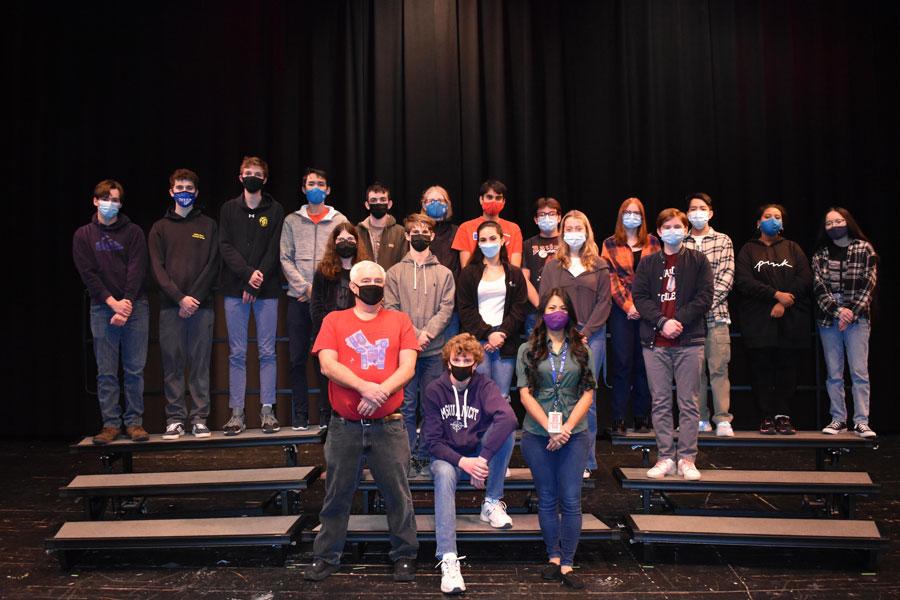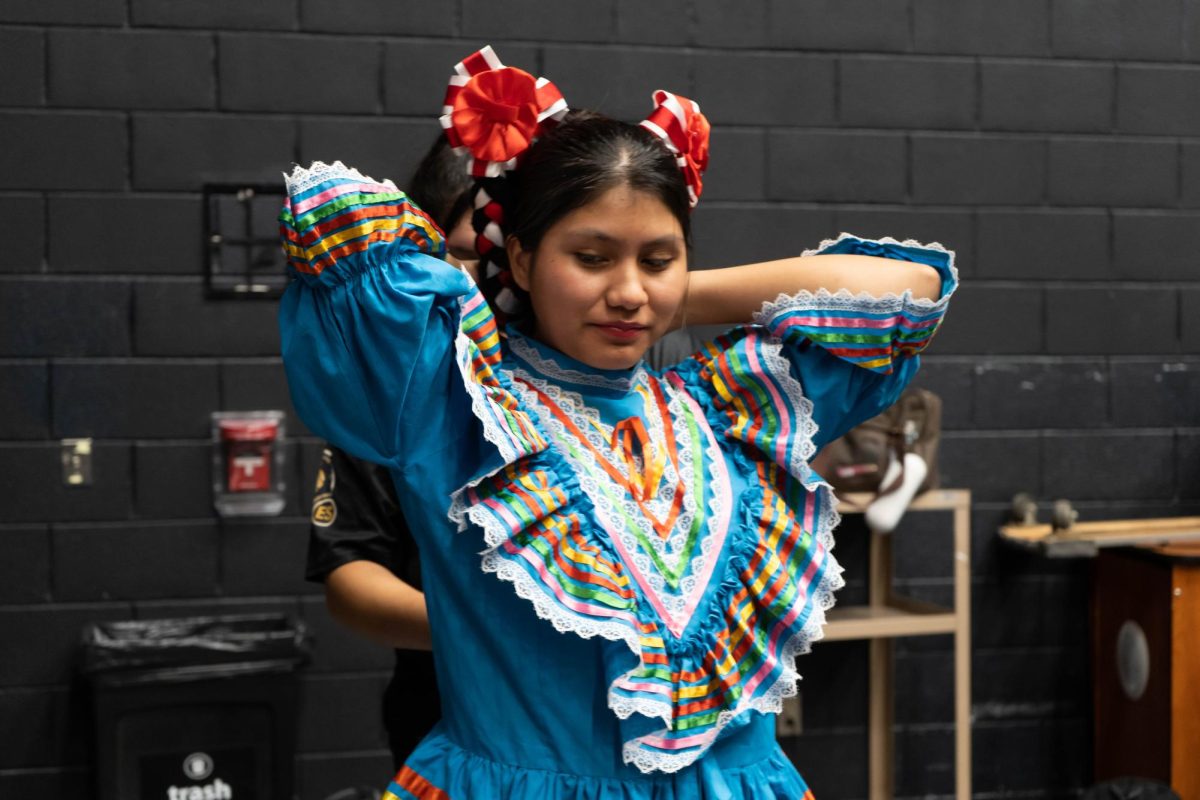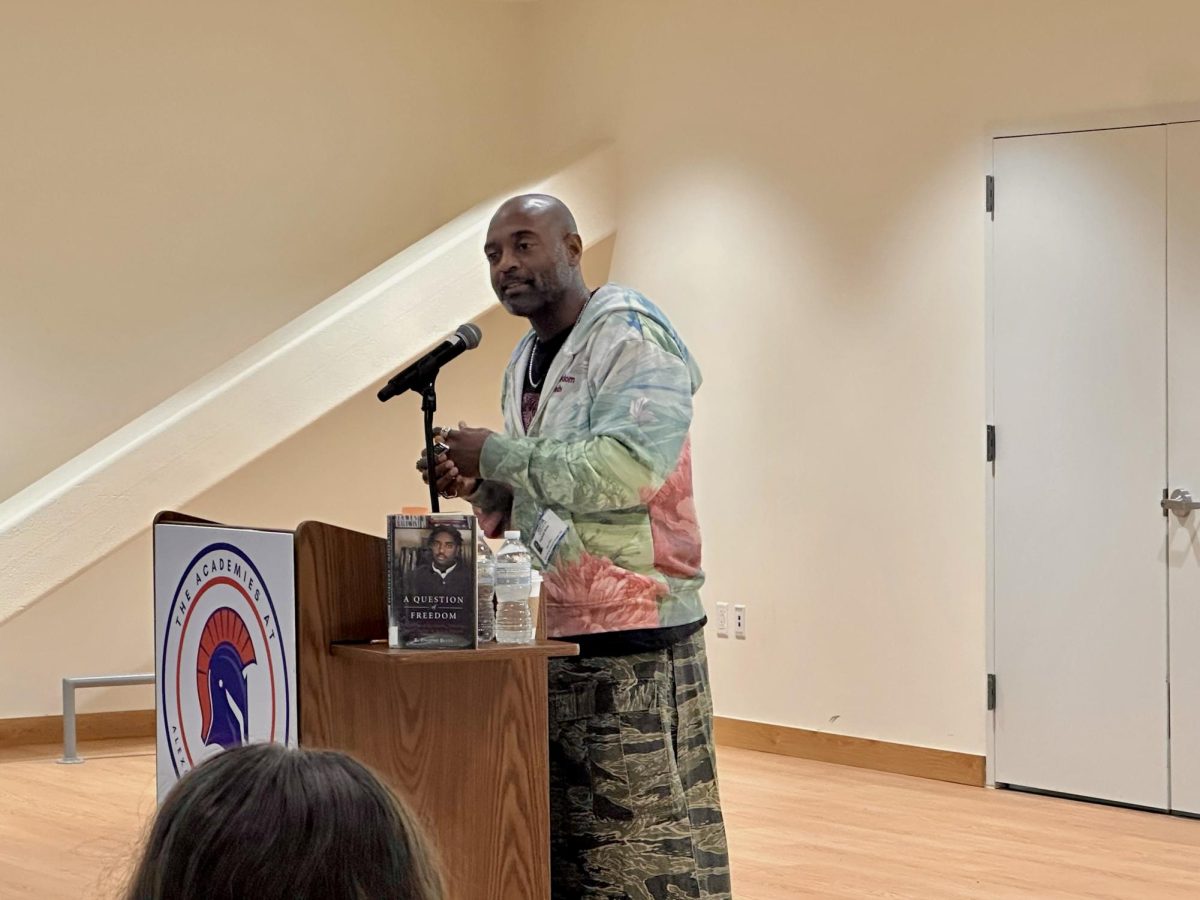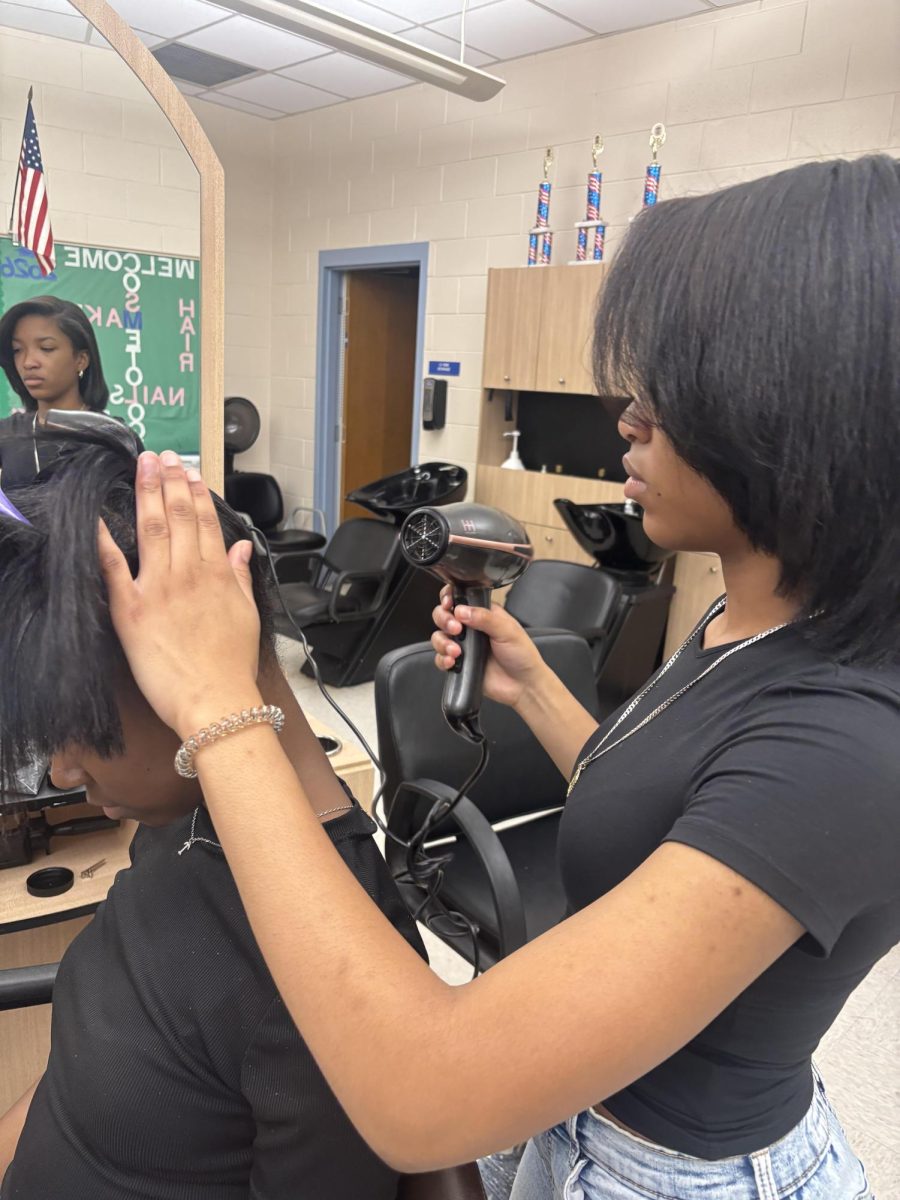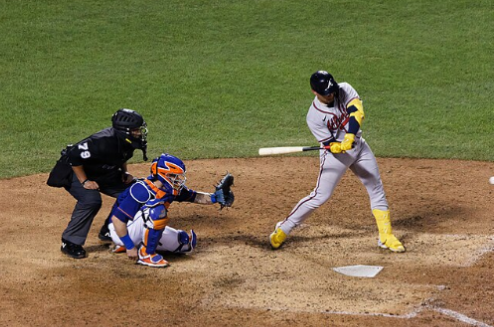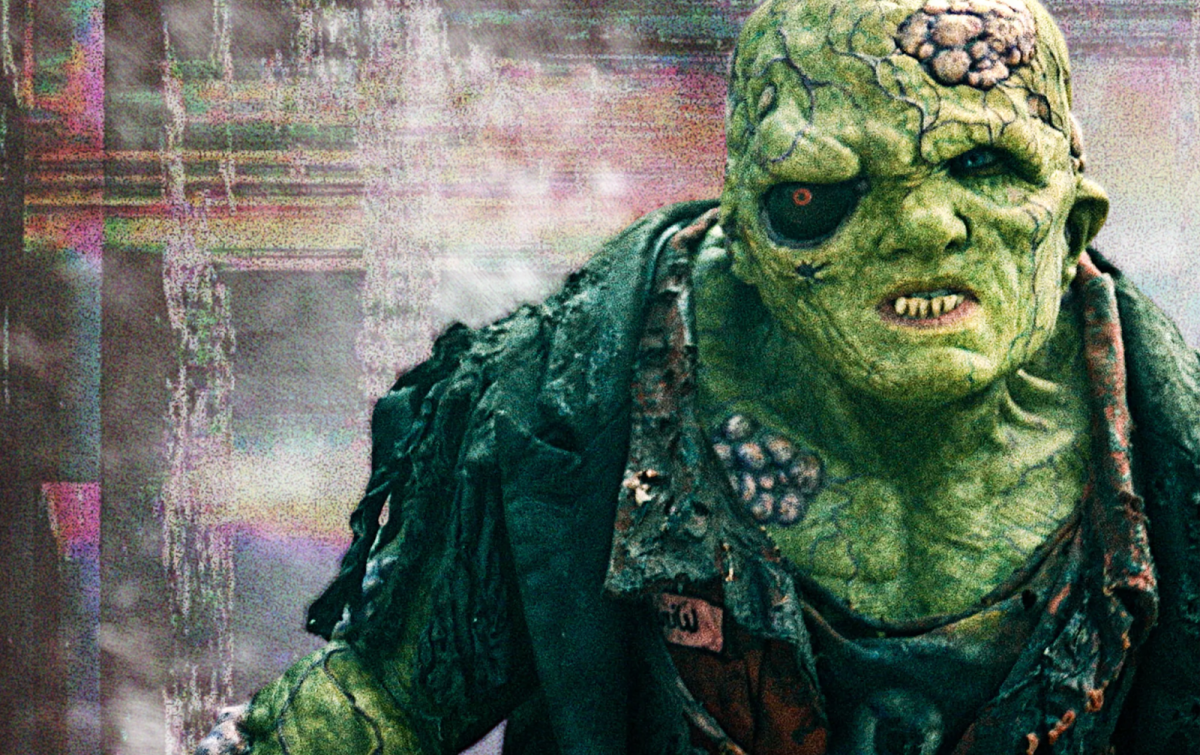Jake DeSimone and Lara Schuerhoff
Staff Writers
Every year, thousands of schools across the country compete as ‘Science Olympiads,’ putting their knowledge and skills to the test as they formulate, create, and innovate a variety of devices within the field. With Science Olympiads on track to garner similar popularity to its Mathletes counterpart, Alexandria City High School has recently created its own division, ready to participate in all levels of competition.
In September of the 2021-2022 school year, the Science Olympiads team was officially created at ACHS. Led by Timothy Anderson, Jatanee Reyes, and David Ly, the group quickly adjusted to the first in-person school year since COVID-19.
“In order to get some sort of organization, we have captains to communicate with the people who are doing the events,” said Anderson. These captains lead the physics, chemistry, earth science, engineering, and biology subgroups. “They ideally meet every week.”
The team prepared for their first competition by meeting during Lunch and Learn. The Science Olympiads have a more flexible schedule compared to the weekly meetings of other clubs at the school. Every day of the week, room A313 is open for the team members, since not every member is able to attend at once. While there are occasional group meetings, they are tailored to the teammates schedules and availability.
Another way that the team readied themselves for competing was by completing projects. While one might think that a new team like AC’s would struggle against the already in-place teams of other schools, this is not the case. The events change every year so that the teams with more experience do not have an advantage. With a total of 23 events, all aspects of science are covered in the competitions.
Anderson himself has a history of supporting Science Olympiads, and has been coaching teams in other high schools for “twenty-some-odd years.” These two factors helped the team in completing some of the projects already.
Some projects that the team had created and participated in included “identifying some rocks and minerals, another thing might be building things like a clock […] a rubber band driven airplane, a vehicle that rolls down a ramp and has to stop at a specific distance,” according to Anderson.
In early January, the group competed in its first invitational competition. Out of the three regional competitions in Virginia, the team chose to compete in Charlottesville, securing a high enough placement to move on to the state competition in March.
“Qualifying for states was an accomplishment. At states, we earned the number one rookie team award. For a new team, we did pretty well and we’re proud of that,” rejoiced Anderson.
However, this is just the start for the number one rookie team. Recruiting for the 22-23 school year has already begun, and will continue into the fall of this year. For such a strong team, it is severely lacking in members. With goals to create two teams of 15 people, the Science Olympiads are seeking out potential candidates and pursuing those with interest in the club.
For those on the fence, Mr. Anderson emphasized that, “There’s a lot of value to learning this stuff and doing this stuff because it’s fun and it’s fun competition.”
Unfortunately, there can not be more than seven seniors on the team. Soliana Million, the only sophomore on the team, urged underclassmen to join. “We need more sophomores, I’m the only sophomore on the team, next year everyone else will be seniors.” Mr. Anderson agreed, adding, “We really need to do some recruitment.”
